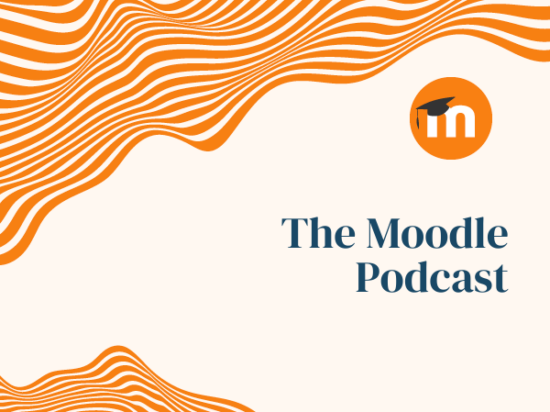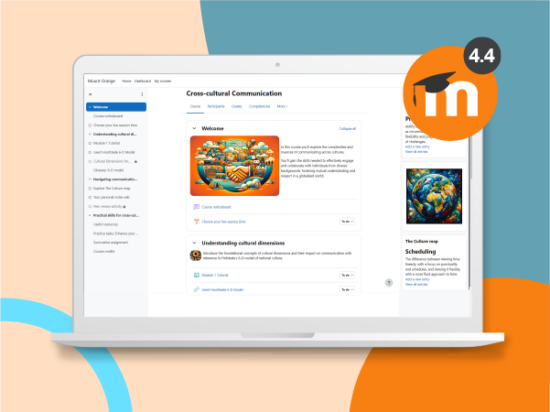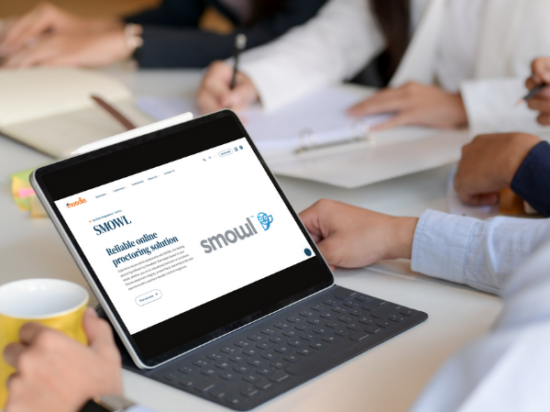Every Monday we’ve been introducing you to helpful, committed Moodlers from throughout the Moodleverse. Recently we met up virtually with Luiggi Sansonetti in France and our own Mary Cooch and Sander Bangma at Moodle HQ.
This Monday we talk to Mexican Moodler, Germán Valero, a long-time documentation and video translator, core language translator, tester, plugins contributor and Particularly Helpful Moodler.
We wanted to find out more about why Germán is so dedicated to Moodle. Here’s what he said!
Moodle HQ: Thanks Germán for taking the time to chat to us. Can you tell us a bit about yourself and how you got to be involved with Moodle.
Germán: I am a professor of Veterinary Pathology at the largest Veterinary Medicine school in Mexico. I was the first teacher to use Moodle in my school.
Moodle HQ: When did you start “Moodling?”
Germán: In 2005.
Moodle HQ: How did you come across Moodle?
Germán: An engineer friend of one of my undergraduate students suggested that I try Moodle in an old PC. I did, and very soon I was using Moodle for my weekly quizzes for my undergraduate Veterinary Pathology course. A short time later, other veterinary teachers wanted to use Moodle and it had an exponential growth.
Moodle HQ: According to Helen and Mary, our Community manager and educator, you are super-fast at translating new features! How do you find the time? What appeals to you about the process?
Germán: I wanted to help other Spanish-speaking teachers and students to better use this great tool, to improve teaching and assessing in many subjects. Translating from English is usually easy, and it gives me a great satisfaction to be able to help many teachers and students who could not enjoy the English language education that I had.
In 2013, I had a sabbatical that I used to write three books in Spanish language (one of them on Moodle 2.4 for University teachers; it is freely available at http://apuntesenlinea.fmvz.unam.mx/mod/url/view.php?id=7879 ) and translate most of the core Moodle English language strings and many popular additional plugins.
When I began using Moodle, many of my fellow teachers complained about the scarcity of Spanish language documentation for Moodle. I knew that I could make a difference, and I have been doing it ever since.
When I was an undergraduate student, it was a rule that most worthy-reading books in many fields were initially available in English only, and the Spanish translations were available years later and at a far greater cost. For Moodle, we can have the same brand-new Moodle releases available in many languages the very same day of the original English release. This makes me (and many Mexican moodlers) very happy.
Moodle HQ: Moodle is very popular in Central and South American countries. Why do you think this is, and what’s been your experience of it?
Germán: A recent survey by the Mexican Association of Higher Education Institutions ANUIES (http://estudio-tic.anuies.mx/ ) found that in 2016, 75% of Mexican H.E. institutions used Moodle, and it grew to 76% in 2017. Most Latin American H.E. institutions have very capable computer engineers, but very limited funds for IT, which makes Moodle a very logical and cost-efficient choice.
Moodle HQ: What are you most excited about in terms of the future of Moodle and the open source project – particularly in terms of languages? What are you looking forward to seeing in 2018 and beyond?
Germán: I hope Moodle core will keep on improving the tools available for teachers. The fact that it can be so easily and quickly translated into so many languages makes it a very efficient LMS on a world-wide basis.
A well-translated Moodle in any language is just as great (and free) as the original English version.
The international cooperation for one common goal is a great feature of Open Source projects. Moodle specially has benefited from extremely useful plugins contributed by many people from very many countries and with different mother languages. If you add many good small contributions, you get a phenomenal improvement in the overall set of tools.
—–
Thanks Germán for taking the time to talk to us today. We really appreciate it.
See you next week for another conversation with a Moodler.



